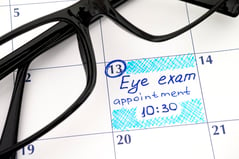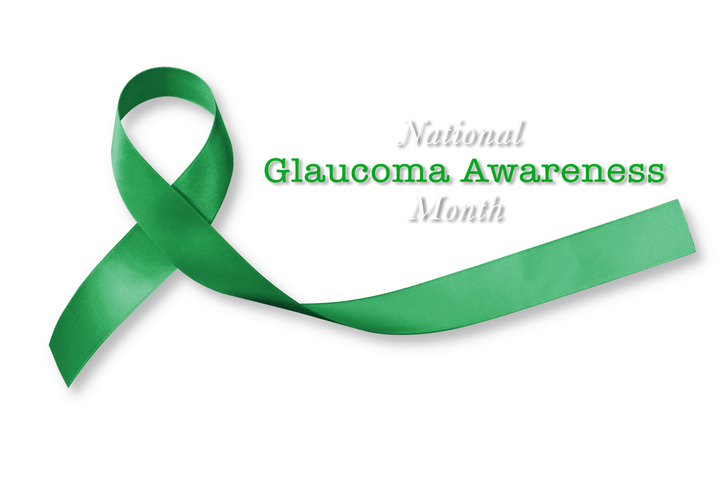Glaucoma is a leading cause of vision loss and blindness in the United States. That's why eye health organizations such as Prevent Blindness have designated January as Glaucoma Awareness Month.
It's key to emphasize the importance of glaucoma awareness for seniors and their caregivers. Although glaucoma can affect anyone, the National Eye Institute (NEI) reports people over age 60 have a greater risk of developing glaucoma than the general population. According to NEI, people with a family history of glaucoma, African-Americans and Hispanics over age 40 also experience higher rates of glaucoma.
 What Is Glaucoma?
What Is Glaucoma?
Glaucoma is a general term that refers to several eye diseases that damage the optic nerve, which results in vision loss. Left untreated, glaucoma causes blindness. Often when people mention glaucoma, they’re refer to primary open-angle glaucoma. This is the most common type of the condition and it's what we're discussing in this article.
When someone is diagnosed with primary open-angle glaucoma, the fluid in the eye does not drain as it should. Damage to the optic nerve occurs as a result of the excess fluid causing increase eye pressure. Glaucoma may affect one or both eyes.
Symptoms
In the early stage’s glaucoma may not have symptoms. Vision loss occurs slowly and begins with peripheral (side) vision. By the time people become aware of vision changes from glaucoma, they have severe vision loss. Glaucoma-related vision loss cannot be reversed. The Centers for Disease Control estimates that half of the three million Americans with glaucoma may not know they have it.
In view of the fact that glaucoma doesn't have symptoms in the early stages, having annual eye exam is key to catch glaucoma early. It's essential that everyone who is at increased risk for glaucoma visit an eye care specialist for a comprehensive eye exam. The eye health professional will inform you as to how often to return for follow-up eye wellness exams.

How to Prevent Further Damage
There is good news. Treatments are available to stop glaucoma from progressing. The eye health professional may recommend one or a combination of the following treatments.
Medication
Prescription eye drops are a common treatment. They work by reducing the amount of fluid the eye produces, improving the eye's drainage, or both. To be effective, patients must use their eye drops as often as prescribed. The eye health professional will review all medications the patient is taking in order to prescribe the appropriate eye drop. Careful monitoring of the drops by the eye doctor will occur to ensure the drops are effective.
Laser Treatment
Laser treatment is an outpatient procedure that's frequently performed in the physician's office. The purpose of laser treatment is to drain eye fluid to decrease eye pressure. This treatment is effective for the majority of patients. However, it takes up to six weeks to determine if the treatment was successful.
Surgery
Surgery may be recommended when medication and laser treatment did not provide relief or improve sight. There are several surgical procedures to treat glaucoma by reducing eye pressure. The type of glaucoma the patient has, and the severity of the disease determines which procedure is appropriate.
The Takeaway 
Routine eye exams are the only way to discover glaucoma before it causes significant vision loss or blindness. Seniors have an elevated risk of glaucoma; therefore, routine eye exams are the best course to action to identify any potential risk of glaucoma.
Church Home LifeSpring is driven to exceed normal caregiving as an experienced provider of rehabilitation services to the Middle Georgia community. Contact us if we can assist you or a loved one.

